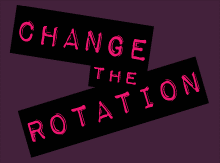Punk Rock Book Club: Sellout by Dan Ozzi
Steve O - November 11, 2021

It’s been a while since we’ve had one of these, but this is a perfect one to revive punk rock book club with. If you loved Michael Azerrad’s Our Band Could Be Your Life, but wished there was an updated version, this is the book you’ve been dreaming of. Dan Ozzi’s Sellout: The Major-Label Feeding Frenzy That Swept Punk, Emo, and Hardcore (1994-2007), takes the tenets of Our Band Could Be Your Life and flips it. Instead of wrapping up the story once the ink dried on the major-label contract, Ozzi chronicles each bands’ story and includes the nitty-gritty details of signing that big deal, recording that much-anticipated record, and in some instances the implosion that came next. In addition to biographing each band, Ozzi peers behind the curtain into the boardrooms, giving more insight into how those major-labels operated than most punks would probably care about. He also shares some context on smaller scenes, indie labels, and how the whole world of music changed over the decade-plus span covered.
To save you from looking it up, Sellout covers Green Day’s Dookie, Jawbreaker’s Dear You, Jimmy Eat World’s Static Prevails, Blink-182’s Dude Ranch, At the Drive-In’s Relationship of Command, The Donnas’ Spend the Night, Thursday’s War All the Time, The Distillers’ Coral Fang, My Chemical Romance’s Three Cheers for Sweet Revenge, Rise Against’s Siren Song of the Counter Culture, and Against Me!’s New Wave. I get why a book like this needs to start with Green Day, and though it feels like that story has been told a bunch, one of the things Ozzi does well (most markedly with Green Day, but throughout as well) is establish a context for the world these stories were happening in. For Green Day, it was leaving the Maximum Rocknroll/Gilman Street scene and filling the vacuum left by Nirvana after Kurt Cobain’s death. Along with the insight into how the major-labels were operating, it takes the eye-roll of ‘another Green Day chapter’ into something more interesting.
Sellout has a nice mix of stories. There’s bands whose stories I have a good feel for (At the Drive-In, Rise Against, Against Me!) and bands where I knew almost nothing (Jimmy Eat World, The Donnas, The Distillers). It’s fascinating to see how spiteful some reactions were to selling out to a major label (Green Day, Jawbreaker, Against Me! for example), while others were collective shrugs, as well as the bands’ rationales for making the jump. My favorite reason amongst the eleven? Thursday using it as their only way to escape from Victory Records. Sums up that era pretty well. It’s also interesting how the changing technology played an impact. We start with the Book Your Own Fucking Life era, when CDs and MTV were still a big deal. It stands in stark contrast to collapse of CD sales, the panic over downloading music, the internet-savvy of My Chemical Romance. I love that Ozzi explains what Myspace was (is?) in that chapter, because it seemed like such a monumental, inescapable thing at the time.
Obviously one of the biggest draws here is that it’s a total nostalgia trip. So many of these records were huge for me in middle school and high school, and reading about the worlds these records were made in takes me back. You’re gonna want to go back and re-listen to them, or check out the ones you missed - I’ll admit I had no idea that Bleed American wasn’t Jimmy Eat World’s big major-label debut. It might not make you change your mind much; it reinforces how much I found Blink-182 annoying (though I find their immature humor vs. the stiff suits entertaining) or why I dug At the Drive-In’s Dischord-influenced ethics, for example, but even the bands that aren’t your favorites are still intriguing reads, and the world was small enough that someone you like was still probably referenced. Hell, even just reading about some of those old tour packages makes me yearn for a time machine (Anti-Flag, Rise Against, Against Me!, and None More Black? Sign me up). While the idea of selling out might not really hold much weight anymore, just another example of how much the musical climate has changed, it was a big deal, which makes the stories in Sellout such fascinating historical documents. The whole book documents a unique era, one we probably won’t see the likes of again. If you even have a passing interest in any of these bands, it’s a worthwhile read. If you have a history with it, if you’ve basically grown up with them like I have, you’re absolutely gonna love it. Dive in and enjoy.
